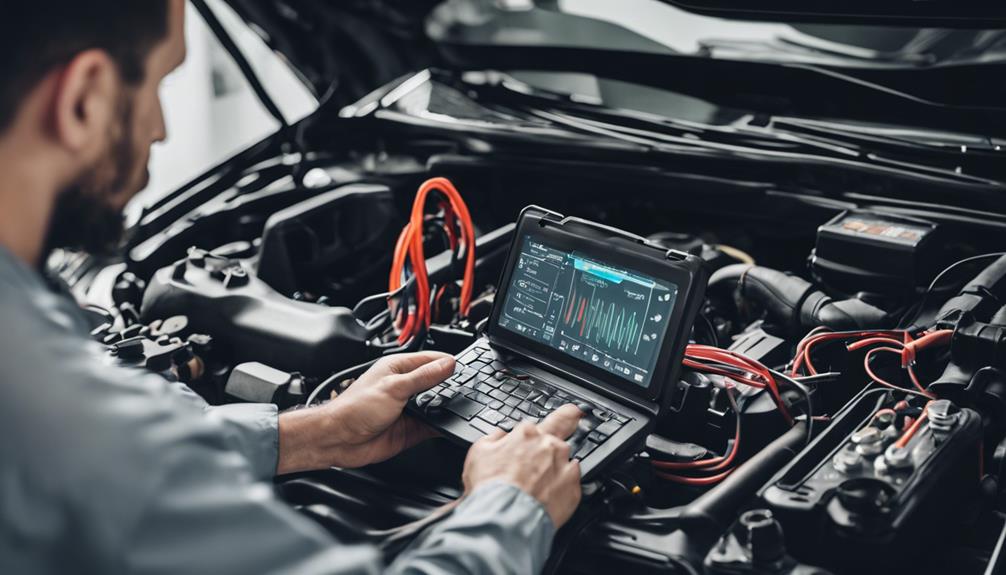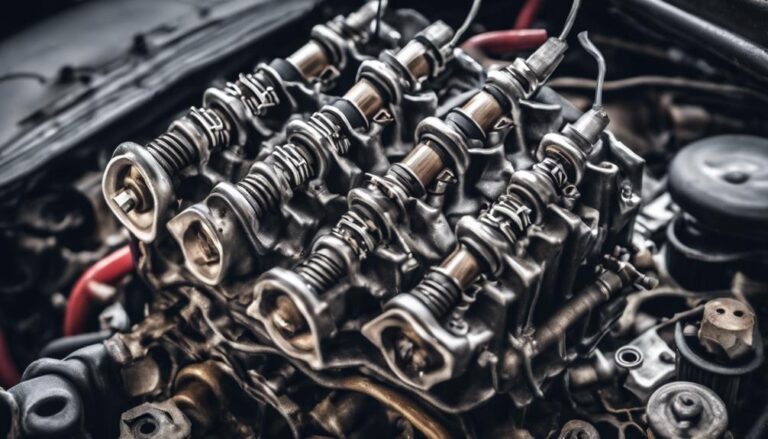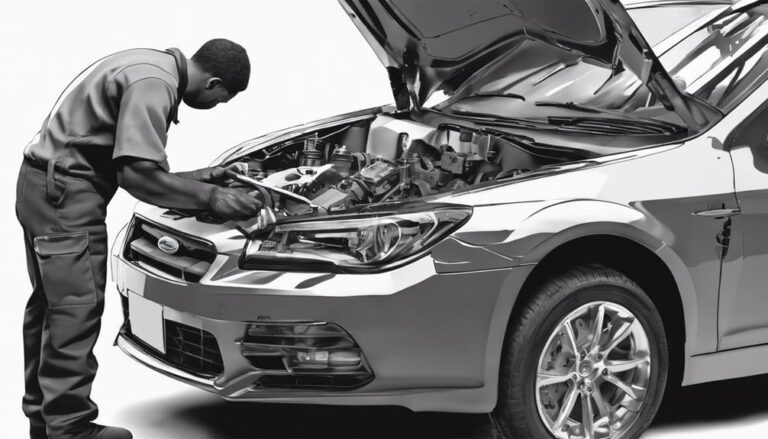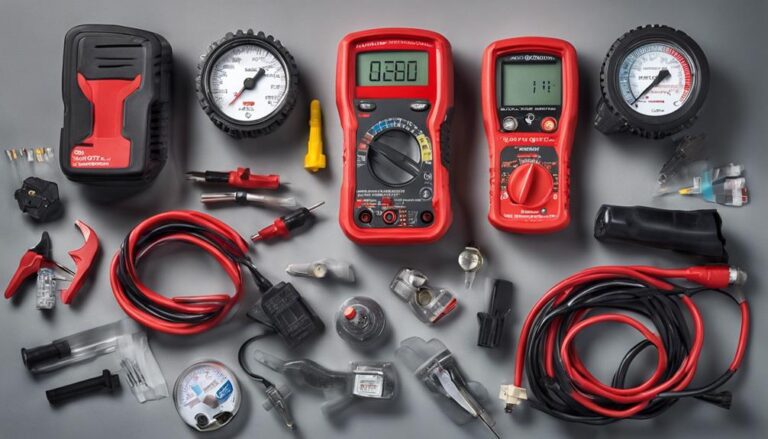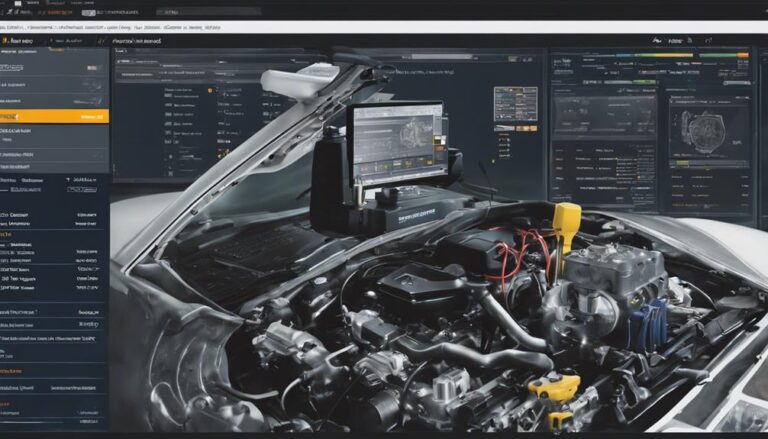5 Essential Car Engine Diagnostic Tests You Need
When it comes to keeping your car engine running smoothly, it's crucial to peel back the layers and uncover potential issues before they snowball into major problems.
Imagine having the power to foresee and prevent costly repairs while ensuring your vehicle operates at its best. By acquainting yourself with the five essential car engine diagnostic tests, you can take proactive steps towards maintaining your car's health and performance.
Each test plays a unique role in safeguarding your driving experience, but which tests should you prioritize?
Stay tuned to discover the key to unlocking your car's diagnostic potential.
Key Takeaways
- Cylinder compression test pinpoints engine issues early.
- Ignition system assessment ensures proper spark plug function.
- Fuel delivery inspection prevents misfires and poor performance.
- Exhaust system examination detects leaks and catalytic converter problems.
Cylinder Compression Test
When conducting a cylinder compression test on a car engine, you assess the pressure each cylinder can generate during the compression stroke to evaluate its overall health. This crucial test serves as a window into the internal workings of the engine, allowing for a detailed cylinder health assessment and engine performance evaluation. By measuring the compression levels in each cylinder, technicians can pinpoint potential issues such as worn piston rings, faulty valves, or damaged cylinder walls that could be impacting the engine's efficiency. Discrepancies in compression values between cylinders can highlight specific areas requiring attention and targeted repairs to ensure optimal performance.
Understanding the compression levels is vital because low compression in a cylinder can result in problems like misfires, reduced power output, and decreased fuel efficiency. Regularly conducting cylinder compression tests can help preemptively identify and address potential engine issues, ultimately preventing major problems and ensuring the smooth operation of your vehicle.
Ignition System Test
To assess the functionality of your car's ignition system, conduct an ignition system test to evaluate essential components like spark plugs, ignition coils, and the starter motor. This test is crucial as it helps identify issues such as weak spark, misfiring, or starting difficulties that can affect engine performance and efficiency. By examining these components, mechanics can pinpoint problems and recommend necessary repairs or replacements to ensure proper engine function.
Here are some key steps to perform during an ignition system test:
- Spark plug inspection, performance analysis: Check the condition of the spark plugs and analyze their performance to ensure they're sparking correctly.
- Ignition coil voltage measurement: Measure the voltage output of the ignition coils to verify they're operating within the specified range.
- Troubleshooting techniques: Use diagnostic tools to troubleshoot any issues detected during the test.
- Starter motor evaluation: Assess the starter motor to guarantee proper engagement and functionality.
- Misfire detection: Look for signs of misfiring which can indicate ignition system problems.
Regularly conducting these tests as part of your car maintenance routine can help prevent engine stalling, poor fuel economy, and starting issues, ensuring optimal engine performance and reliability.
Fuel System Pressure Test
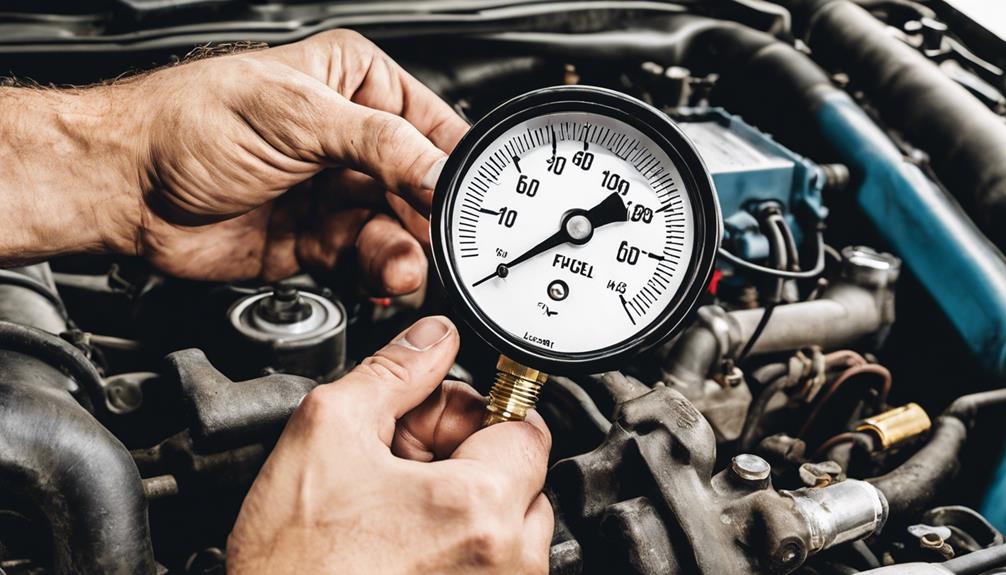
Assessing the fuel system pressure is essential in ensuring optimal fuel delivery to your car's engine and diagnosing potential issues affecting its performance. A fuel system pressure test involves checking the pressure within the fuel system to guarantee that the engine receives the correct amount of fuel. This diagnostic procedure is crucial for identifying problems such as fuel pump failure, clogged fuel filters, or issues with the fuel pressure regulator. Low fuel pressure can lead to engine misfires, poor performance, and stalling, highlighting the importance of this test.
To give you a clearer picture, below is a table outlining the key aspects of a fuel system pressure test:
| Fuel System Pressure Test | Importance |
|---|---|
| Checks fuel pressure level | Ensures proper fuel delivery |
| Identifies fuel system issues | Diagnoses engine performance problems |
| Helps prevent engine misfires | Ensures efficient vehicle operation |
Exhaust System Analysis
Conducting an in-depth examination of your vehicle's exhaust system is crucial for detecting potential leaks, damages, or blockages. Here are the key aspects to consider during an exhaust system analysis:
- Catalytic Converter Function: Assess the catalytic converter to ensure it's effectively reducing harmful emissions by converting them into less toxic substances.
- Muffler Maintenance: Inspect the muffler for signs of damage or corrosion, as a well-maintained muffler helps reduce noise levels and directs exhaust gases out of the vehicle.
- Exhaust Pipes Inspection: Check the exhaust pipes for rust, holes, or leaks that can lead to decreased engine performance and increased emissions.
- Oxygen Sensor Examination: Evaluate the oxygen sensors to ensure they're functioning correctly to regulate the air-fuel mixture for optimal engine performance.
- Identifying Common Issues: Look for rust, corrosion, loose or broken parts, and exhaust leaks that can impact engine efficiency and emissions levels.
Regular analysis of your exhaust system is essential for maintaining your vehicle's performance and minimizing environmental impact.
Engine Computer Diagnostic Scan
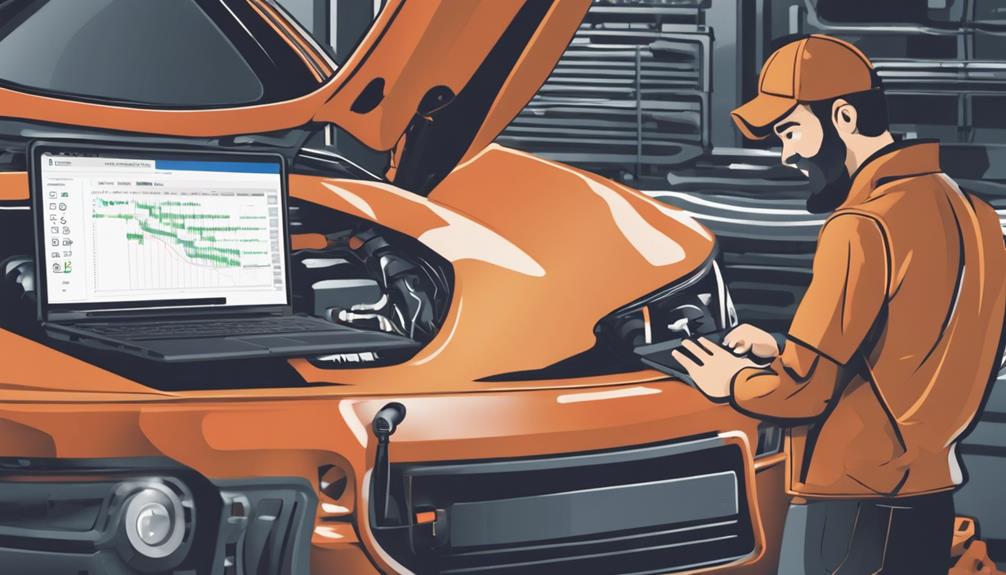
When diagnosing your vehicle's engine, an engine computer diagnostic scan is an essential step to accurately pinpoint any issues within critical systems. By connecting a scanner to your car's computer system, this diagnostic scan reads trouble codes that offer specific information about problems in the engine, transmission, exhaust, and other vital systems. Technicians rely on this data to troubleshoot electronic systems effectively, allowing for targeted repairs and maintenance. Regular engine computer diagnostic scans are crucial for preventing major malfunctions and ensuring your vehicle operates at its best.
| Diagnostic Tool Options | Benefits |
|---|---|
| OBD-II Scanners | Read fault codes, monitor performance |
| Multifunction Scanners | Access advanced diagnostics, perform resets |
| Bluetooth Scanners | Connect wirelessly to mobile devices for real-time data viewing |
Frequently Asked Questions
What Does a Full Car Diagnostic Include?
A full car diagnostic includes checking the engine, transmission, exhaust, brakes, and critical components for issues. It uses specialized software to monitor systems, generating detailed reports for performance. This process helps identify common issues and ensures a thorough diagnostic assessment.
How Much Should an Engine Diagnostic Cost?
When getting an engine diagnostic, costs can range from $50 to $200. Prices may vary based on complexity and location. Consider hidden expenses and DIY options for savings. Seek online resources and ensure diagnostic tool accuracy.
Will a Bad Engine Come up on a Diagnostic Test?
When troubleshooting engine performance, a diagnostic test can accurately detect a bad engine by revealing specific issues like misfires, sensor failures, or low compression. The reliability of diagnostic tools ensures prompt action for optimal performance.
What Is the Difference Between a Check Engine Light Scan and a Diagnostic?
When your check engine light flickers, it's like a whisper of trouble. A scan merely hints at issues, but diagnostics dive deep, unveiling the engine's secrets. Embrace both tools for a smooth ride ahead.
Conclusion
Now that you've learned about the 5 essential car engine diagnostic tests, remember that neglecting these tests can lead to costly repairs and unsafe driving conditions.
Did you know that 80% of car breakdowns could have been prevented with regular diagnostic testing?
Stay proactive and ensure your vehicle's health and performance with routine engine diagnostic tests.

